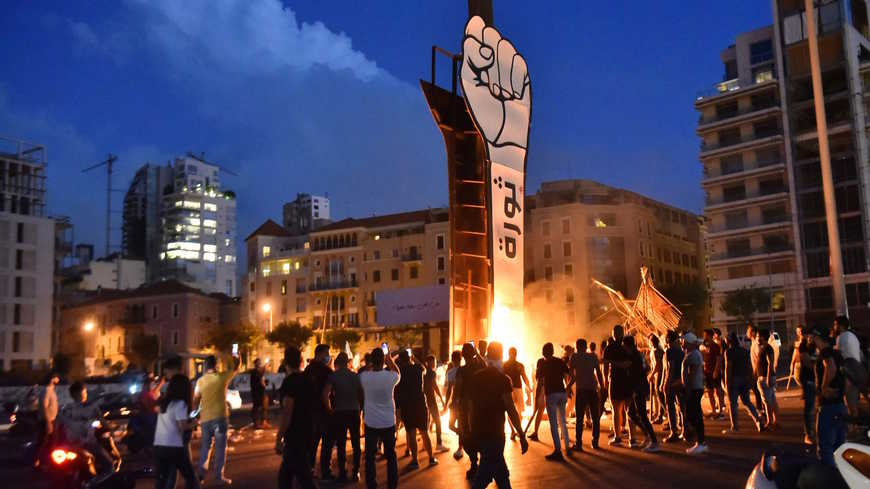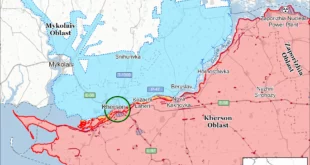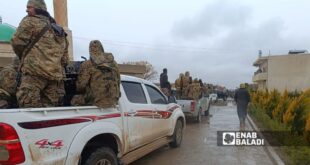
Lebanon’s political elite have yet to form a government despite the urgency as the country slides further into economic collapse.
France, the United States and other countries’ stances with Lebanon’s ruling class seem to be intensifying after the latter failed to form a government that would pull the country out of its deep economic crisis.
Back in 2018, Lebanon was promised an $11 billion aid package at the Conference for Economic Development and Reform through Enterprises (CEDRE) in Paris aimed at rallying international countries for investment support to boost the country’s economy. The funds from CEDRE, however, were contingent on structural reforms that were never implemented; hence, the money wasn’t given.
Mass protests emerged on Oct. 17, 2019, calling for the stepping down of the political elite that have ruled the country since the 1975-1990 civil war, whom they blame for the economic collapse.
Since then, the economic crisis has worsened and was exacerbated by the coronavirus pandemic that left the country with massive hyperinflation, more than 50% poverty levels and the depreciation of the Lebanese pound by more than 80% in a country that relies almost entirely on imports.
After the Beirut port explosion on Aug. 4, French President Emmanuel Macron visited Lebanon and made the political elite promise to form an independent government that would achieve necessary reforms in what has been named “the French initiative.” But none of that has happened, and no government has been formed after the previous one was forced to resign following the port explosion.
Patrick Durel, an adviser to Macron on Middle East and North Africa affairs, visited Lebanon on Nov. 12 and held a series of meetings with officials and heads of the eight parliamentary blocs, including representatives of Hezbollah. Durel made clear that while France remains committed, “We will not bail them out unless there are reforms,” Reuters reported.
On the other hand, US Ambassador to Lebanon Dorothy Shea, speaking at an online conference of Washington-based think tank CSIS on Nov. 13, said the Beirut explosion was the last straw for a lot of middle class Lebanese who are fed up with the corruption and mismanagement — the kind that produced the port explosion — adding, “There is no sense of urgency that I can detect to get a new government in place that will be able to take the meaningful decision on everything from reform to really tackling the coronavirus pandemic and dealing with digging the country out of the huge hole that it’s in.”
Shea explained that state failure has to be avoided first and foremost, but “we can’t want more than they do” — referring to wanting reforms more than the Lebanese.
In the meantime, restructuring firm Alvarez & Marsal has quit its contract to carry out a forensic audit of Lebanon’s Central Bank — which is a key demand for international donors — because it did not receive the documents needed due to bank secrecy laws that allegedly wouldn’t make the audit possible, the country’s caretaker Finance Minister Ghazi Wazni said on Nov. 20.
On the other hand, caretaker Minister of Justice Marie-Claude Najm had said on Nov. 10 that Lebanon’s Central Bank Governor Riad Salameh is using bank secrecy laws and Article 151 as an excuse not to submit the documents.
On Lebanon’s 77th Independence Day on Nov. 22, Lebanese President Michel Aoun addressed the nation and spoke about the country’s difficulties, saying that Lebanon “is a prisoner of corruption, political scheming and external dictations.”
“If we want statehood we must fight corruption … and this begins by imposing the forensic financial audit,” he said, adding that he would not “back off” the issue.
Meanwhile, designated Prime Minister Saad Hariri is struggling to form a government a month after being appointed. Hariri was renamed prime minister a year after stepping down under pressure from the October 2019 protests.
“I don’t see a government formation until the [Joe] Biden administration engages in negotiations with Iran,” said Sami Nader, director of the Levant Institute for Strategic Affairs.
Nader told Al-Monitor that Lebanon’s government formation is a pressure point from Iran against Western countries and particularly the United States since Hezbollah is the most powerful party in Lebanon and can decide whether a government gets formed. He added, “The Lebanese-Israeli maritime border negotiations was a plan B for Hezbollah in case [Donald] Trump was elected president, and it is no coincidence that these negotiations have stopped now that Biden is the president-elect.”
US- and UN-mediated maritime border talks between Lebanon and Israel had begun late October in an effort to resolve the dispute between the two countries on offshore land, which is thought to contain natural gas that both Israel and Lebanon plan to exploit.
Nader added that the country is heading toward catastrophic living conditions, especially after the lifting of the subsidy program expected to take place next month, which would leave the majority of Lebanese unable to buy food and medicine.
“There is not going to be an injection of money from international donors without reaching an agreement with the International Monetary Fund (IMF), which would [require] serious reforms,” said Nader.
In the midst of its worst economic crisis, Lebanon had begun negotiations with the IMF in May to try to inject dollars into the country but had failed to come to any agreement after struggling to accomplish basic reforms. The negotiations were suspended in July.
On Nov. 17, parliament member Elias Abou Saab from the Free Patriotic Movement — a Christian party that has the most seats in parliament and is allied with Hezbollah — said in a TV interview the reason government formation has not yet happened is because of a disagreement on the names of the ministers and their levels of competence. “It is hard to decide who’s competent and who’s not,” said Abou Saab, adding, “The crisis we are facing today is because of external pressures to change the positions of some.”
On the other hand, parliament member Mohammad Hajjar from the Future movement led by Hariri said that a government with competent ministers will be formed and will achieve reforms for six months as the French initiative demanded.”
Hajjar also replied to Abou Saab’s claims about ministers’ competence, saying, “People who talk about different standards for different parties are just using it as an excuse to obstruct government formation.”
It seems at this point that the delay in government formation is in part due to the insistence of some parties to name the majority of Christian ministers in the government as well as Hariri’s insistence on naming the ministers alone. According to reports, sources of the Shiite duo Hezbollah and Amal movements told Al-Joumhouria that “the mechanism for placing the names of ministers is the main node that continues to delay the agreement on forming a government,” stressing that “it is not acceptable for the president-designate alone to choose the names of ministers, whatever their sects, because such a matter implies a fundamental amendment of the rules of participation, and it constitutes a precedent that some people may arm themselves with in the future, turning the exception into a rule.”
The situation is not as black and white as it might seem when following a process in Lebanon; a lot of political inclinations and interferences come to play. What should be a clear process to follow becomes a politicized issue settled through partisanship and a fragile balance of power.
Political analyst and the owner and editor-in-chief of Alkalima Online Simon Abou Fadel told Al-Monitor another intervening factor is the American demand to not include Hezbollah in the government, which Hariri takes into account.
Abou Fadel said the recent sanctions on Free Patriotic Movement leader Gebran Bassil have complicated government formation.
Bassil was sanctioned by the Trump administration on Nov. 6 on charges of corruption, although he is also accused of close ties with Hezbollah.
Asked about the absence of protests against the political class who are acting as if there is nothing wrong in spite of a severe economic crisis, Abou Fadel said, “The people of Lebanon have gotten really frustrated after being faced with violence from security forces and party members whenever a protest takes place. It is no surprise that their only concern now is not starving to death rather than holding politicians accountable.”
All major parties in Lebanon advocate reforms in order to resolve the country’s issues, yet at every chance for change, they seem to be driven by more seats and partisan disagreements rather than saving the country from its worst economic crisis yet to come.
 Eurasia Press & News
Eurasia Press & News



